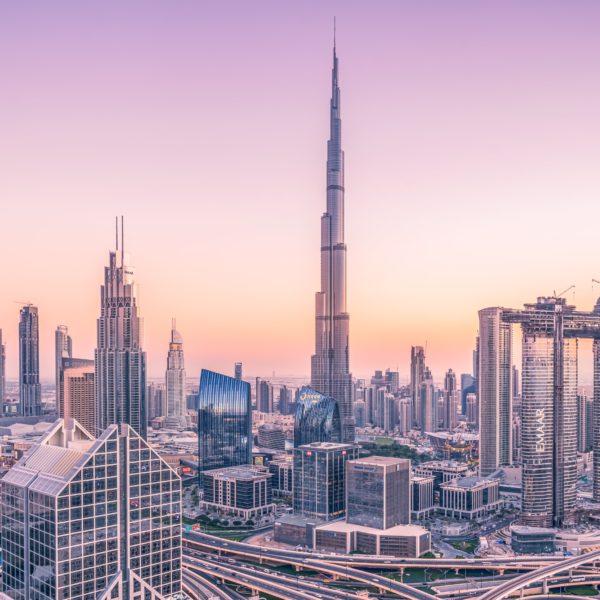Prices are dropping but the bottom is nowhere in sight yet primarily because the oversupply issue has not been adequately dealt with yet.

“The Dubai Expo has been postponed to 2021, and economic recovery is not expected till at least 2022.”
Dubai has always prided itself on being a city of luxury and business, the financial center of the Middle East. For a long time, its government focused on building the world’s “biggest”, “longest”, or “first” structure or the other: ‘world’s tallest tower’, ‘largest man-made island’, ‘largest mall’, ‘largest dance-performing fountain’, ‘longest automated metro system’, etc.
Unfortunately, there seems to have been little attention paid to the real estate and property sector, surprising considering that it was the bedrock upon which the Arab Emirate built its economic strategy to break away from oil-dependency. Since 2014, the property price index has been in a continuous negative decline, with property today at less than 70% of its value then. Investors are now anticipating pulling the trigger on the old “buying low” investment tactic. But the question is, are we at the “low” yet?
“Since 2014, the property price index has been in a continuous decline, with property today at less than 70% of its value then.”

The answer is a firm and confident “NO”. There are two main reasons:
1. Oversupply
The Dubai Land Department (DLD) has announced the possibility of conducting an online survey of buyers and sellers of residential and commercial properties from anywhere, anytime, as Construction Week reported.
The data released showed that residential property prices in 2019 fell 8.8% year-on-year, and for 2020 it is 7.7%. The main reason is oversupply. The city is struggling with an extremely high vacancy rate, and it’s pulling the market down.
In Dubai, more than 35,000 apartment units were completed in 2019 (the highest ever delivered in a year), bringing the total residential stock to about 555,000 units. The shocking part is that 80,000 more units are expected to be ready for delivery in 2020, according to JLL MENA. This will be the fifth consecutive year for the supply of units to outstep demand.
This has been an ongoing problem that was made worse by the lack of reliable occupancy rates for residential villas and apartment units, and therefore delayed action. Reports of half-empty buildings are plenty though, and hotel-apartments occupancy rates (before the Covid-19 pandemic) were reported at 69% at the end of 2019, a significantly low rate for such a bustling financial metropolis.
The Dubai government has just announced, but did not yet enforce, measures to curb the oversupply. The effect of such measures will not turn around property prices on a dime though, it will take years for an effect to start showing.
2. Overall Economic Slowdown
The development of the UAE economy as a whole has slowed down on average since 2015. Dubai was having even a harder time. For five consecutive years, GDP annual growth rate of Dubai struggled below 2.5%.
2020 was expected to be a rebound year, with projections placing GDP growth to have reached 3.2%, on the back of introduced economic stimulus packages, support of entrepreneurship programs, and the expected tourism and business boon from the Dubai Expo 2020. All that however fell to the side with the Covid-19 pandemic and the ongoing economic recession.
The Dubai Expo has been postponed to 2021, and economic recovery is not expected till at least 2022. Unlike what some eager articles seem to promote, the Dubai Expo 2021 will not by itself bring economic prosperity back, but with all the factors working together, and with them having a lagging effect on property prices, it is far too early to jump in.

Covid-19 Implications
Let’s face it, this is currently the sick elephant lying in the middle of the socially distant room. The pandemic is not just affecting the Dubai economy, it did and continues to wreak havoc on the global scene. Every country is in some form of shutdown, international flights are operating at a tenth of capacity and hotel occupancy is in the low 20%.
According to the IMF, the global growth in real GDP is estimated at -4.9% for 2020, which means the world would end up losing about USD 3.5 trillion of economic output.
2021 is projected to be at a positive 5.4% growth, but is not expected to wipe out 2020 effects.
Property prices in Dubai are therefore expected to continue trending downwards well beyond 2021. It’s not a time for even the most adventurous investment fund out there to start screening deals in the Middle Eastern city.
For the time being, the right move will be to wait out all the construction cooling measures, the post-Expo 2021 slump (yes, the demand for accommodation during the Dubai Expo will be temporary), and the global return to normalcy.
We should be looking at no earlier than beginning of 2022 to consider then if the property prices have stabilized, and that would be based on the success of reining in the oversupply most of all.

